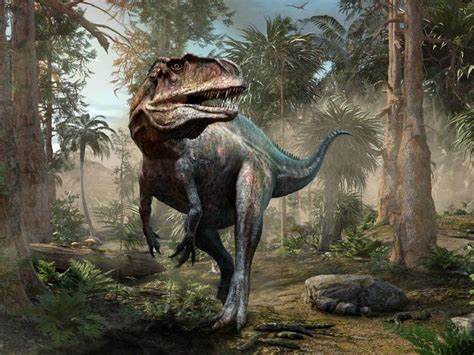The Top 10 Most Dangerous Things in the World
Opening:
When we think of dangerous things, our minds often jump to things like snakes, spiders, or other creatures that can hurt us. But danger can come in many forms, and some of the most dangerous things in the world may surprise you.
Ebola: This deadly virus has claimed thousands of lives in Africa and other parts of the world, and it's extremely difficult to treat.
Nuclear Weapons: The power of these weapons is unparalleled, and the potential for destruction is almost unimaginable.
Black Holes: These mysterious cosmic phenomena have the power to swallow entire stars and destroy everything in their path.
Extreme Weather: From hurricanes and tornadoes to wildfires and blizzards, nature can be incredibly dangerous when it unleashes its full force.
Drug-resistant Bacteria: With the rise of antibiotic resistance, many common infections are becoming much more difficult to treat.
High-speed Car Crashes: When vehicles collide at high speeds, the results can be catastrophic and deadly.
Deep Sea Diving: Exploring the depths of the ocean can be incredibly dangerous, with the risk of drowning, decompression sickness, and other hazards.
Free Climbing: Scaling sheer rock faces without ropes or safety equipment is a risky and often deadly activity.
Space Travel: Leaving the safety of Earth's atmosphere brings a whole new set of dangers, including radiation, microgravity, and the risk of catastrophic equipment failure.
Artificial Intelligence: As machines become more intelligent and autonomous, there is a growing concern that they could pose a threat to humanity if they are not properly controlled.
Closing: While some of these dangers may seem remote or unlikely to affect us personally, they are all very real threats that could have catastrophic consequences. By understanding these risks, we can take steps to protect ourselves and work towards a safer and more secure future
.
Ebola: This deadly virus has claimed thousands of lives in Africa and other parts of the world, and it's extremely difficult to treat. It's highly contagious and spreads through contact with infected bodily fluids. Despite the development of a vaccine and treatments, Ebola remains a major threat to public health, especially in areas with poor healthcare infrastructure.
Nuclear Weapons: The power of these weapons is unparalleled, and the potential for destruction is almost unimaginable. Just a single nuclear bomb can wipe out entire cities and cause long-lasting environmental damage. There are currently nine countries known to possess nuclear weapons, and the possibility of accidental or intentional use is a constant concern.
Black Holes: These mysterious cosmic phenomena have the power to swallow entire stars and destroy everything in their path. While they are typically located far away from Earth, their immense gravity can have a profound effect on nearby objects, such as stars and planets. As we continue to explore the universe, it's important to understand the potential dangers of black holes.
Extreme Weather: From hurricanes and tornadoes to wildfires and blizzards, nature can be incredibly dangerous when it unleashes its full force. Climate change is causing more frequent and severe weather events around the world, which can lead to loss of life and property damage. It's important to take precautions and be prepared for these types of disasters.
Drug-resistant Bacteria: With the rise of antibiotic resistance, many common infections are becoming much more difficult to treat. Overuse of antibiotics has led to the evolution of superbugs that are resistant to multiple types of antibiotics, making treatment options scarce. If left unchecked, this could lead to a public health crisis.
High-speed Car Crashes: When vehicles collide at high speeds, the results can be catastrophic and deadly. Even with safety features like airbags and seatbelts, a high-speed crash can cause severe injuries or death. It's important to practice safe driving habits and obey traffic laws to reduce the risk of accidents.
Deep Sea Diving: Exploring the depths of the ocean can be incredibly dangerous, with the risk of drowning, decompression sickness, and other hazards. Deep sea divers must undergo extensive training and use specialized equipment to avoid these risks. Despite these precautions, accidents can still happen.
Free Climbing: Scaling sheer rock faces without ropes or safety equipment is a risky and often deadly activity. A single slip or misstep can lead to a fall that can result in serious injury or death. Even experienced climbers have lost their lives attempting these feats.
Space Travel: Leaving the safety of Earth's atmosphere brings a whole new set of dangers, including radiation, microgravity, and the risk of catastrophic equipment failure. While space travel has led to many important scientific discoveries, it's important to acknowledge the risks involved and take steps to mitigate them.
Artificial Intelligence: As machines become more intelligent and autonomous, there is a growing concern that they could pose a threat to humanity if they are not properly controlled. This could happen if machines are programmed to prioritize their own objectives over human safety or if they become so advanced that they are beyond our ability to control. It's important to consider the ethical implications of AI development and take steps to ensure that machines are aligned with human values.
Closing: While these dangers may seem daunting, it's important to understand and address them in order to protect ourselves and our planet. By taking steps to mitigate these risks, we can create a safer and more sustainable future for all.





Comments
Post a Comment